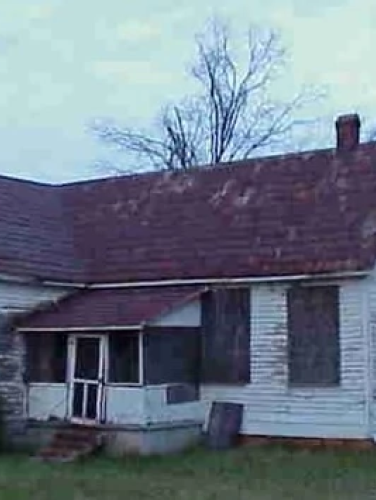
Bethesda Schoolhouse
(ca. 1898)
Bethesda Schoolhouse is Mecklenburg County’s oldest known surviving rural African American schoolhouse.
4431 Neck Road, Huntersville, NC 28078
By the eve of the Civil War, North Carolina had developed a progressive public education system. But there was no guarantee that schooling would be available to everyone. Many poor White children could not attend school either because no school was conveniently available or because their parents resisted the idea of general education for various reasons, typically because they needed their children home working in the fields. Prior to the Civil War it was illegal to educate enslaved persons in every state except Tennessee. By 1860, ninety per cent of the Southern adult Black population was illiterate. With the war’s end, the freedpeople – who held high hopes for the meaning of freedom – understood education to be the necessary first step in acquiring political and economic parity with Whites.
Property Quick Links
North Carolina’s public school system was non-existent by the end of the Civil War. The state was so impoverished that there were no funds to develop another school system, leaving the education of all children to external agencies like the Freedmen’s Bureau. In North Carolina, over 20,000 children were enrolled in 400 Freedmen’s Bureau schools, but the Bureau was poorly funded and ultimately dissolved. As a result, the newly emancipated often pitched in to raise funds to buy land, build schools, and pay teachers. Local funding also came from Northern benevolent societies and state governments. Although North Carolina’s new constitution established separate schools for African American children, funding was up to the discretion of local county boards. In some cases, the insufficient funding available for Black students was exhausted on building the schoolhouse, leaving no money for teachers’ salaries. Both Black and White rural schools were often supported by contributions raised by local families. By 1880, the average school term was only nine weeks and only one-third of the state’s school age children attended school.
Charlotte established its first graded schools by 1882. Black and White children were taught in separate buildings. The city’s first graded school for African Americans was in an old tobacco barn in First Ward. It was later replaced by Myers Street School. Mecklenburg County did subsidize Black schools but by the turn of the century, educational opportunities for African Americans remained inadequate in comparison to White students. Aside from the surviving examples of Rosenwald Schools, Mecklenburg County has only three known surviving rural African American schoolhouses: Bethesda Schoolhouse, Reed School in Steele Creek, and Siloam School (now located at the Charlotte Museum of History). Bethesda is the oldest of those schools. It is believed that Bethesda was built by John Young, a prosperous and well-liked local Black farmer. By the 1940s, the school was no longer in operation. The building was later sold and become something of an informal community center.
Originally located at 13129 Alexandriana Road, increasing development pressures forced the relocation of the Bethesda Schoolhouse to its current location at Rural Hill in 2006, where it has since been restored.

